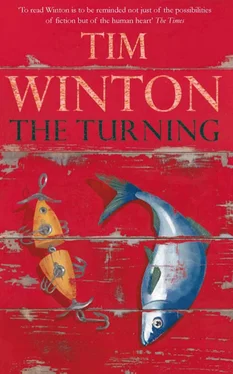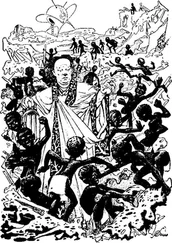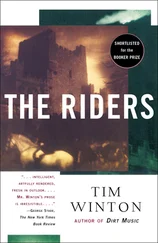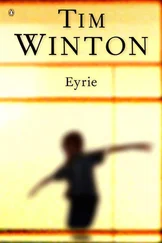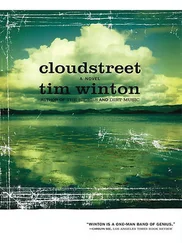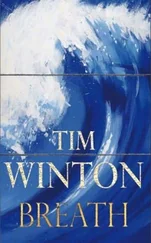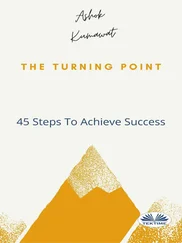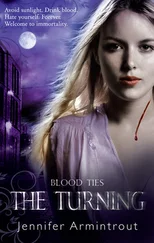But later. If it had kept going.
We’re not really in the army.
Almost, though. They’re training you for war.
He looked out the window.
Will you join up? I asked. When you finish school?
The army? No, it’s foul.
I don’t get it, I said. Being in the cadets.
There’s good stuff, he said, looking around him now as if to see who might be listening in. Bivouacs, hikes. We build things.
And shoot guns, I murmured.
Yeah, he said with a grin. That’s the best part.
Right.
Appalled as I was, I found myself smiling with him. He had slightly girlish lips. Beneath the crisply rolled-up sleeve and the sergeant’s stripes the skin of his arm was tanned and I wanted to press against it.
You going to Angelus? he asked, looking at his hands. One of his thumbnails was black. I thought of it coming off when school got back.
Yeah, I said.
Ever been before?
That’s when I realized that he didn’t know me at all. We went to the same high school, where he was a year above me. I’d been watching him for eighteen months now, finding excuses to idle past him at lunchtime where he sat outside the library with some boys who didn’t seem to care about him one way or the other. I had assumed that my face was familiar at the very least. But he didn’t have a clue who I was.
I shook my head.
Sorta crappy town, he said.
I’m from City Beach, I lied.
Posh, he said.
Not really.
Is it a girls’ school?
No, I said. I didn’t know anything about City Beach. I went there once for a swim and got stung by a jellyfish. My father said I was a bloody sook.
Behind us, a baby began to cry. I pulled my hair behind my ear. I had lovely hair then. He seemed to grow more conscious of me there beside him, to shrink somehow because of it. I knew all about him. I knew he was lonely. I saw him ride down on the wharf some Sundays. I used to picture myself walking on the beach with him. He didn’t have that ugliness, the sporting cruelty that boys are supposed to have. Which is why the uniform and the talk of guns upset me.
Well, I think it’s stupid, someone like you, being an army cadet.
Well, that’s your opinion.
It’s dangerous. Reckless.
Nah.
Playing soldiers, I said scornfully.
I bit my lip then. He was fingering his book. I’d lost him.
The wheels clattered beneath us. His boots squeaked as he moved in the seat beside me.
Last year, he said, this kid got electrocuted. That’s what they reckon. He was signalman. Carrying the radio, you know? It’s got a huge thing on it, a whip aerial. He was climbing over something. The aerial touched some powerlines.
God, I said. And he died?
That’s what they reckon.
That’s horrible.
Yeah.
You ever think about stuff like that?
He burred the pages of the book against his palm.
Sometimes.
Death, I mean.
He nodded.
This week I had this weird thing. I was in the butts. At the rifle range? You have to take turns being down behind the bank. You know, putting the targets up and down, marking hits and stuff. You wave a flag for a washout, a total miss. It’s boring as hell. Anyway, I’m down there and all this crap’s going overhead, you know, and all the rounds are whacking targets and thumping into the sandbank on the other side of us. And there’s this ricochet. It doesn’t sound anything like on TV. You know, on cowboy shows. This was like some kind of moan — really scary-sounding — and then suddenly, next to me on the bench, there’s this white thing like a star and it’s spinning and spinning, hot as hell and just standing up on one of its points next to me leg.
A bullet?
Yep.
And I’m just sittin there with me eyes out on sticks, staring at it.
What happened?
He looked at me. He seemed to be looking at my knees.
Nothing, he said. It just ran out of puff. It slowed down and fell over. Right there, like where you are. Right next to my leg.
Did you keep it? Have you got it?
No. I didn’t wanna touch it. But it was kind of like a sign. It made me feel weird. Kind of immune. Death right there beside me and I’m immune.
God, I said.
Yeah.
We were close to home now. The ranges were in view. The air had that southern chill to it again.
I’m going to school here this year, I said.
Really?
Yeah. Hell, if you’re immune to death I’m gunna hang around with you .
He laughed and I could have torn my tongue out from sheer embarrassment. I was hurling myself at him. It was worse than walking past his house five times in one afternoon which I did one Sunday. That time I saw him at the window. He had a broom in his hand or maybe a hockey stick. He was looking but not seeing. It made me wonder about him.
We sat quietly the last few minutes as if both of us were trying to figure out what was going on between us. I breathed in the smell of him, looked at his hands on the unread book. I thought of him crossing the quad to see me next week. People around us pulled down their luggage.
When we came into the station there was a cop car there with its light going.
Shit, he said.
I knew who his father was. He grabbed his duffle bag from the rack and pushed past me before the train had even stopped.
I never spoke to him again. This new war made me remember.
It was his little sister in hospital with meningitis. I heard all about it later. She died.
WITH THE WINDOWS DOWN and the autumn breeze in their hair, Vic and Gail wound up through the valley past vineyards and fruit stands and ramshackle craft shops toward the scarp where the morning sun was still in the trees. She drove. He was tilted back amidst the pillows she’d wedged around him, oblivious to her sidelong glances, the way she chewed her lip. He was preoccupied with memories. After three weeks in a darkened room, they were a swarm he could neither evade nor disperse. He let out a snort.
What? said Gail, winding up her window.
I used to play basketball.
Yeah.
Wasn’t any good, of course. In the city I’d always played football. Took me half a season to understand that I wasn’t allowed to tackle the opposition — you know, knock blokes over. They made me a guard. I thought it was like being a fullback. Man! he said with a laugh.
A defender, said Gail. That’s you all over.
Couldn’t shoot for peanuts. My lay-ups were rubbish. If I somehow got a clean break toward our own basket I’d pound down the court, sick with dread, knowing that I was gonna throw a brick. But I loved stopping the other guys getting through. Always did love a zone defence, you know, a real keyway lockdown.
Ah, said Gail wryly. The old keyway lockdown.
We used to play these Aboriginal kids from St Joe’s, he continued, unabashed. They always flogged us. So arrogant and graceful and hostile — just all over us — you know, and then somehow, chirpy as you like, they’d con us into walking them back to the hostel afterwards. I think they were afraid of the dark or maybe something they had to walk past.
Gail let the window down again. Her queasy sense of dread was back. Maybe this weekend wasn’t such a good idea. She was convinced that they needed to be with close friends. But fond of Vic as they were, Daisy and Fenn were more her friends than his. She didn’t want him to feel ambushed, outnumbered. Trouble was, he had no real friends. There were colleagues, comrades, but no one intimate.
I saw one of em again last year, said Vic. One of those boys. That school case we did in the Pilbara? He’s a teacher there now. Must be the only blackfella I knew who made it through school.
That you know of, Gail said.
Читать дальше
